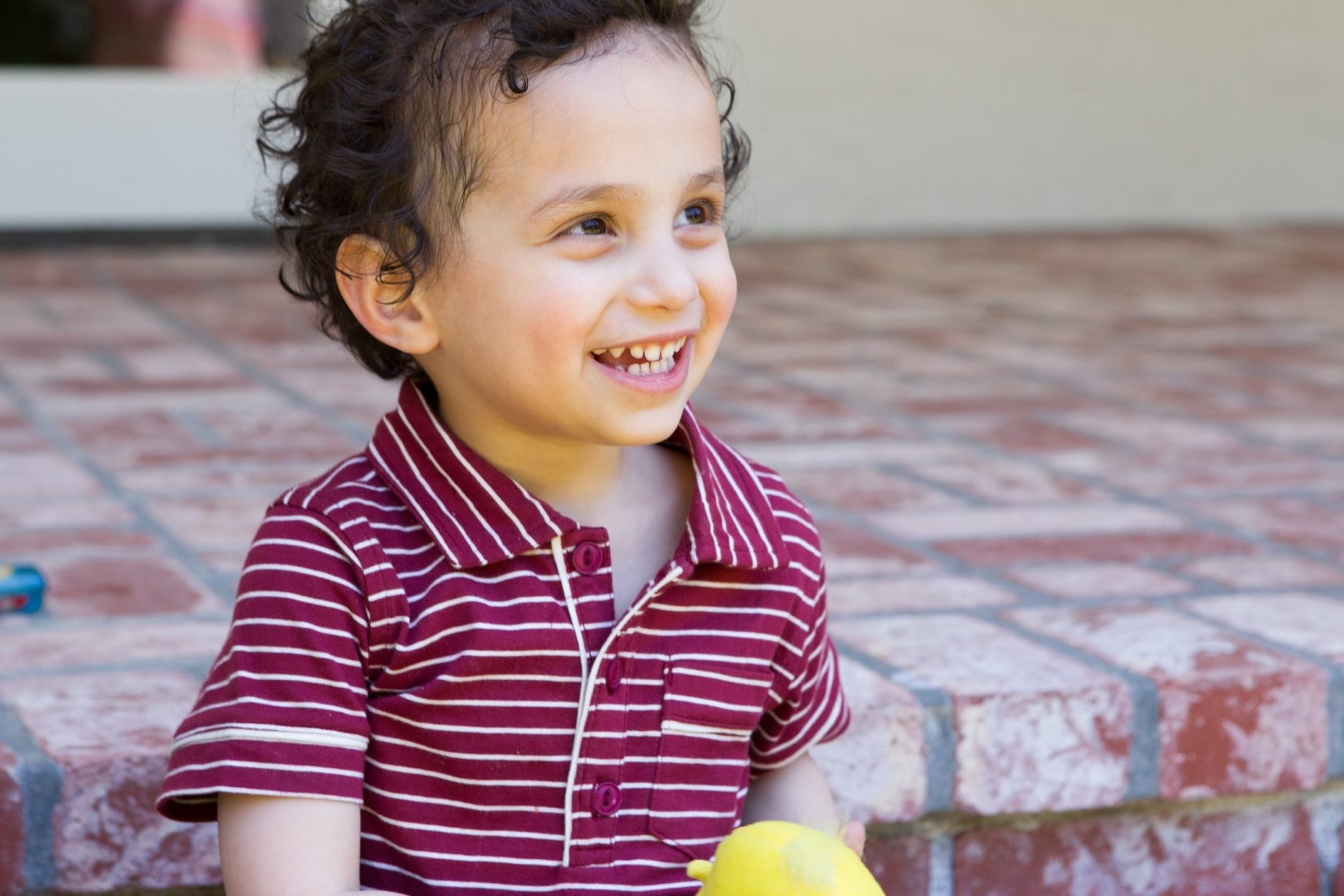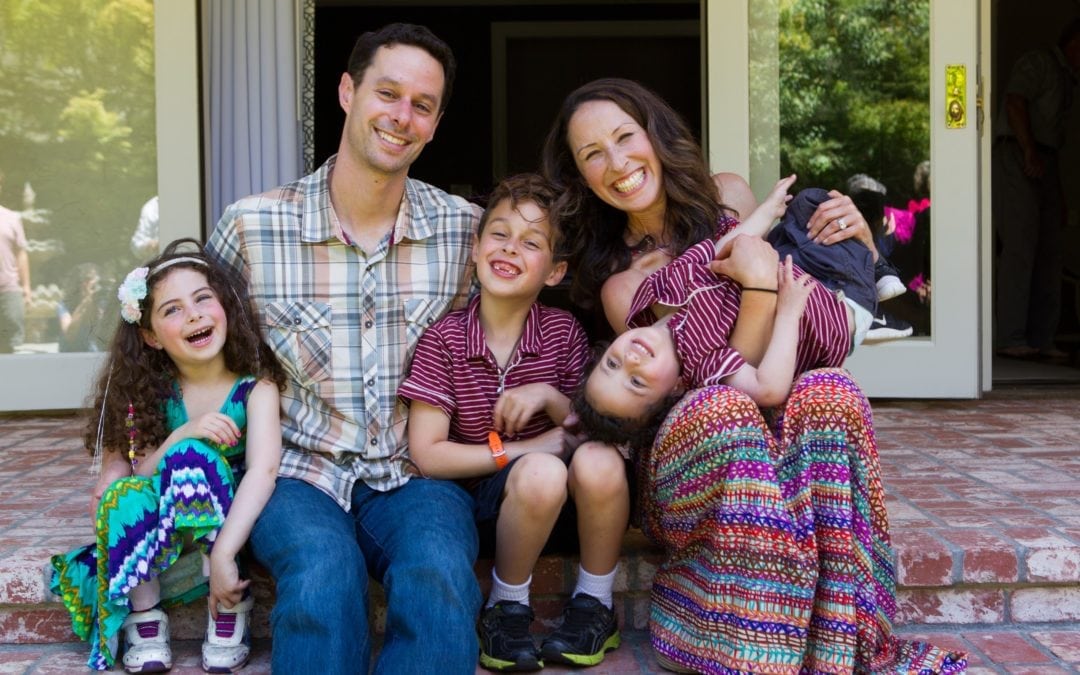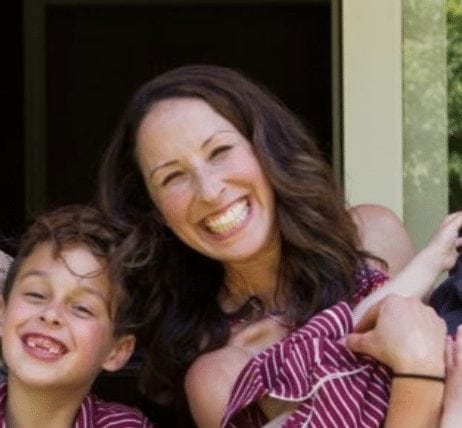Suffocating. Intense physical and emotional pain. All-encompassing. Debilitating. Cannot sleep, cannot focus. So sick to my stomach that the thought of food is sickening. Absolute terror running through my veins. Time is non-existent.
Sounds like a horror movie, like a movie thriller. It was my life for the first 11 months of my son’s cancer diagnosis, and then the last 4 months after his second cancer relapse, until his passing.

Over this journey, there have been times I have felt supported by an army, and times I have felt completely alone. Back in December 2014 when my 14 month old son Andrew was diagnosed with AMKL, an extremely rare, aggressive and deadly form of leukemia, so many people reached out and came to our aid to try to make the nightmare a little more manageable and a little more tolerable. We received meals, holiday gifts for my older kids (3 and 5 years old at the time), calls, texts, Facebook messages, and the list goes on. So much that people said or did was greatly helpful and gave us comfort at a time of immense pain and fear. But there were also things people said or did, however, that were (unbeknownst to them) somewhat hurtful. Even today, nearly two years after Andrew’s passing, people ask me what was most helpful. This is my attempt at answering that question.
My disclaimer is that this is based on my own experiences, and what was helpful for me may not be helpful for someone else. But I write this in hopes that this will benefit at least one other person (and the people who love them) who has been, or will be, in crisis.
By crisis, here is what I mean. While Andrew was undergoing chemotherapy and a bone marrow transplant, living in a hospital isolation room, here is what was happening with me. From the Saturday morning when we went into the emergency room, I left my full time job, never to return to my office. I lived in isolation or semi-isolation with Andrew for 11 months straight. For over three months, I lived in a hospital room 6-7 nights per week. I saw my older kids one hour a day at best. I usually saw my husband a few minutes a day. My days were filled with trying to comfort Andrew, entertain him when he was awake, hold him down as he was screaming during blood draws and meds, dealing with his nausea and vomiting, talking to doctors and nurses walking into the room 24/7, dealing with medical emergencies/decisions constantly, and talking to social workers/psychologists. There was no time for sleep (let alone using the bathroom and showering). Once Andrew was released from the hospital, we moved into a 3rd floor two bedroom apartment so as to keep him safe from outside germs and stay close to the hospital. I became Andrew’s 24 hours/day nurse, responsible for all of his medication/IVs and lines. During Andrew’s relapses as he appeared to be dying, I held him all day everyday, as I was the only person who could comfort him. In addition, my hair started falling out from the stress, and I was dealing with my own slew of medical problems, trauma and grief. None of which I could easily address, because my husband and kids were counting on me to hold the family together.
Many times in the last three years I was a person in crisis. Now that I’m emerging, I’m able to share what I found least/most helpful.
These were the lines that (while well-intentioned) were the hardest to hear.
1. “You are the strongest person I know/ I would not be able to do what you are doing.”
- These words were hard to hear because I did not want to be strong. I wanted to crumble. And yes, you would be able to do this too. Because you would have no other choice.
- Instead: say, “I am sending you strength.”
2. “Thank you for helping us see how lucky we are.”
- Even if you felt/feel this (as we often do when we hear about tragedy hitting a friend or family member), please don’t say it to me. Because I can’t hear how my tragedy caused you to appreciate your life more. Because my tragedy should not have been.
- Instead: Say it to your spouse or family. Not me.
3. “Things happen for a reason. Something good with come out of all of it.”
- Often this comes in a religious context. Many people do believe this. I do not. Even if something good does come out of this, once again, it shouldn’t have been. And you cannot tell me that my 14 month old being hit with the worst type of life-threatening leukemia and having to undergo painful treatment and months of isolation was meant to be. And if that was God’s plan, God and I have bigger issues to discuss.
- Instead: “I’m praying for you and sending all my best wishes that there will be a positive outcome.”
4. “I know he’ll be ok.”
- However comforting this was for me to hear (especially in the early months of Andrew’s illness), you really didn’t/don’t know this. Not even the senior oncologists can tell me that. And at the time, he was not ok, and it did not look like he was going to be. Yes, this line is what I wanted to hear, but I know that you didn’t/don’t know this. You are hoping just like me.
- Instead, “I’m praying for his recovery.”
5. “Let me know if you need anything.”
- I heard this many times. And it was always said with so much love and support. The problem was that I did not know what I needed. I needed you to ask a close family member/friend what might be needed, or come up with your own idea from your heart and just do it. I could not respond to texts let alone organize my thoughts well enough to know what I need. A line like this was more of a burden than a help because now I needed to do something to help you support me.
- Instead: “Can I do ______?” (see more on this below)
6. “It could always be worse.”
- This is probably the worst thing you could say to a parent whose child is dying from cancer. Yes, it could have been worse. I could have been a single mom, have to move across the country for life-saving treatment, and could be strapped financially. But did I really want to think about it being worse?
- Instead: “This sucks. It’s the most horrible thing.” (Because it is!)
7. “I’ll give you space.”
- Please don’t give me space. I was sad/struggling/in pain. Continue to text me/write me/leave messages even when I don’t have the energy nor time to acknowledge them. Because these messages meant the world to me. Because the support of friends and family was all I had to keep me going. If I didn’t want your messages anymore, trust me, I would have told you.
- Instead: “I’m going to keep checking in with you, even if you don’t respond. No need to reply.”
8. “He/she was a wonderful child/friend/relative (fill in the blank).”
- The summers when Andrew relapsed (because it happened twice), I received well-intentioned emails that talked about Andrew in the past tense. And yes, he was in Hospice care with days to live. But he had not died. He was alive in my arms. Once he died, you would have had many years to say this to me, but that was not the time.
- Instead: “Give him lots of kisses from me.”
9. “Did you receive my gift?”
- Your gifts were deeply appreciated. Especially around the holidays, we were so blessed to have so many friends send incredible holiday gifts to all three of my children. And the kids still love the gifts. But instead of checking in with me, please track them so you know if they arrived. When we received many gifts that first December, I was in the hospital. While my husband or my parents were there as the kids opened gifts, I had no idea who sent what. But your gift may have been a huge hit, or even one of Andrew’s favorite toys. And I was so deeply grateful.
- Instead: “I sent you a gift. I hope your kids like it.”
10. “Have you tried. . . counseling/ taking time for yourself/ acupuncture/ taking the big kids out on special adventures, etc.?”
- Please trust me that I was trying. But in those times, it was not possible. I have found a lot of comfort in speaking to others who have navigated different but similar painful terrain, to hear what was helpful for them. But if you have not experienced crisis yourself, please do not offer advice. Just listen and support however you can.
- Instead: “I wish I could give you advice, but I really have no idea what you are going through. I love you and support you.” Or “I’m speechless. I don’t know what to say. I am thinking of you.”
So, how do you support a person in crisis?
Supporting a person in crisis is a selfless act. Because while I have always strived to be a person who expresses gratitude, when in crisis, I had no bandwidth to thank, to acknowledge or to even respond. That said, this is what I found the most helpful:
1. Text and Email.
- Text me daily/nightly/monthly/bi-monthly. Just tell me you’re there, and we are not forgotten. And finish the text/email- “no need to respond”. Because I probably won’t. But know that I read and value every single message. There were many lonely nights in isolation in the hospital when even acquaintances texted or emailed me to let me know they were thinking of us. And I was so touched. And I will never forget who those people are. Friends would text me when they were out running errands to see if I needed anything. Sometimes I would not respond. But sometimes I would.
2. Call.
- Leave messages if I don’t answer. You are not bothering me. I love hearing your voice. And if I don’t respond, please don’t stop. Set on your calendar you’ll leave me a message every week. Or month. Please know that I desperately need to hear your voice. Because I am living in a small white room with a sick child. And I need a reminder that I am not forgotten by the outside world.
3. Don’t ask, JUST DO.
- Don’t ask me what I need. Just offer. Make it as easy as possible for me. If I don’t want it, I promise you I will tell you. Friends delivered magazines when a book was too hard to focus on, smoothies when it was all I could stomach, notes and gifts when we were all alone. They visited us through the window in the bone marrow transplant isolation room. One friend wrote to me frequently. And I rarely responded. This time she sent me a text offering to deliver food. I replied to this one – “yes”. My husband Dan’s favorite story is the friend who texted him: “I’m at the burger store. What do you NOT want on your burger?”
4. Do NOT expect a response.
- Know that I desperately wanted to respond. But all I could focus on was keeping myself and my family afloat.
5. Keep inviting us to birthday parties, holidays and events. Do not expect an RSVP.
- Even if we could not attend, we deeply appreciated being remembered/included. I am most grateful for the friends who invited us to holiday dinners, birthday parties, etc. They were okay with last minute responses and open to last minute changes. Because our big kids deserved to celebrate those holidays and celebrations, even we had to stay local because of our circumstances.
6. And if you are thinking of me, let me know. And don’t wait to tell me.
- There were many times that I felt so alone. Some people only told me months later that they were so emotionally connected to us day in and day out over those many months. Sitting, waiting for the next Facebook post to track Andrew’s progress. Crying in happiness when we got the news that Andrew was in remission the first time, and crying in sadness when he relapsed again. Thinking of us all the time. There were moments when things were at their worst that I would have loved to get the message in the moment. The comments on Facebook were very helpful (I read every one). But if you are moved and there is no post to comment on, write anyway.
Overall, here were some other incredible gestures:
- sending me care packages to help make hospital living more tolerable
- gifting exercise classes to soulcycle, nail appointments/massages, etc. While I often could not take advantage of these gifts immediately, these small moments of ‘me time’ were all I got for the year.
- delivering meals/treats
- dropping off cards
- sending art projects to the kids when we were isolated in an apartment.
- supporting my big kids through pick ups/carpools/playdates
- picking my parents up at the airport
- taking pictures/arranging photos of our family this summer
- and overall, taking care of my family when I could not do it myself.
Yes, supporting a person in crisis is a selfless job, but know that messages/actions/gifts, etc. can help to lift someone up through their pain and struggle. And to those people who took those actions, we will always be so grateful. My husband and I will never be able to fully acknowledge everything our community has done for us. But we will always express our deepest thanks for all that people did to boost us up in our darkest times.
While we no longer need immediate support for our crisis, someone else probably does. Write them a text or email to tell them you’re thinking of them. Because dealing with crisis and pain is lonely. And everyone deserves to feel supported. Don’t ask. Just DO.
About Esther
Esther Levy is a mom of four children between the ages of 1 and 9 years old – three on earth and one who resides in our hearts. In 2014 her life turned upside down when her third child Andrew was diagnosed with AMKL (Leukemia) at the age of 14 months. She left her career in pediatric nutrition and as an exercise instructor to be by Andrew’s side and to care for her family. She is passionate about her family, fitness, and nutrition. Using everything she experienced over the last 4 years, Esther is volunteering at her local hospital, raising funds to expand a music therapy program for children with cancer, and in the early stages of writing a book. She earned a bachelors of arts degree in Human Biology from Stanford and a MSc with distinction in Public Health and Nutrition from the University of Westminster in London. She lives with her family in Silicon Valley.



